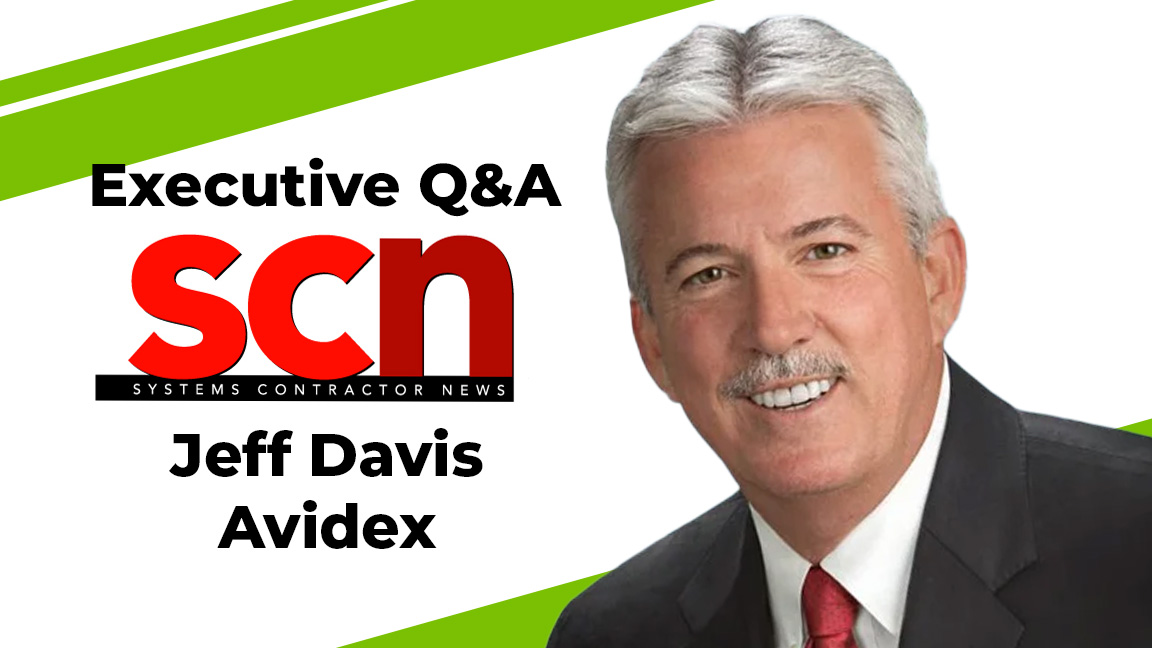Letting My Baby Go
Jay B. Myers takes us down the emotional road to selling his business.
A daily selection of features, industry news, and analysis for AV/IT professionals. Sign up below.
You are now subscribed
Your newsletter sign-up was successful
One of the most difficult decisions small business owners have to make is deciding when to sell—or not sell—their businesses. It may be one of the most important decisions you will ever make in your life. Like many small business owners in the AV industry, I have received numerous calls through the years from a variety of investment bankers, private equity firms, and others who had interest in my business.
Truthfully, I ignored 95 percent of the calls that came in for a variety of reasons that included:
1. The potential investor did not fully understand the value of my business.
2. I was too busy growing my business to worry about selling it.
3. The timing wasn’t right for me, either personally or professionally (or both).
I’m not sure about other owners, but the very thought of selling my business conjured up so many emotions. I had put my heart and soul into starting and growing the business, and I simply wasn’t willing to consider letting it go. I also had to admit, I didn’t trust many of the people making the calls. They all seem to have the same approach, which was too slick, too pushy, and, at the end of the day, most of them didn’t have a clue about AV integration firms. It was a potential investment for them—pure and simple. And that wasn’t good enough for me. As I told my employees many times, I didn’t start my business focusing on money, and I wasn’t going to let it go for the same reason. I started my business for the satisfaction of building something I could be proud of.
But then I got the call. It was from one of those same investment guys I’ve been dodging for years, yet somehow this one seemed different. After just a few minutes of conversation, it was clear to me that the individual calling already knew a lot about me, my company, my clients, and—most importantly—the AV industry. He established credibility early on. And then he mentioned the company that was interested in buying my business. It wasn’t just any company ... it was/is an industry giant. That got my attention! The only problem was that they wanted to meet me at InfoComm 2018 to discuss their interest, answer questions, etc., and I hadn’t planned on making the trip to Las Vegas. But I did mention that my son would be there and that he would be happy to meet with them.
A daily selection of the top stories for AV integrators, resellers and consultants. Sign up below.
I also explained that I had no intention of selling my business, and if the discussion were to go anywhere, it had to include a high-level leadership role for my son because I had previously committed to transitioning him to the role of CEO in January 2019. My son and I had put in a lot of effort and spent thousands of dollars in legal fees to set up the succession plan, timing, finances, etc.
I was fully convinced that when my son met with the company, he would have a negative reaction and we would move on. Boy, was I surprised! He not only spoke highly of the company, but he noted that our companies were closely aligned with go-to market strategies, company cultures, etc. And I had to admit, that it all sounded pretty good to me.
[Read more about the acquisition.]
So what happened next? As you can imagine, there were dozens of meetings between the two companies to discuss next steps, needed information, etc. In other words, they needed to do their due diligence prior to making me an offer. The due diligence process analyzes anything and everything about your business, whether it be vendor agreements, customer contracts, licenses, or legal documents. I have to say that retrieving such a large amount of information—extremely sensitive information—made for the most stressful five months of my career. Every day we needed to submit more and more information, and yet we still had a business to run. Not an easy task.
We finally got to the point where an offer was made. And even then I wasn’t sure. I loved being an entrepreneur and wasn’t certain I could really let go. But after thinking through it all, it came down to addressing three main issues. First, the offer had to be reasonable for me and my family, which included my son’s promotion to a leadership role. Second, I had to make sure my employees would be taken care of with things like benefits and career opportunities. Finally, we had look out for our current customers and ensure they would receive better pricing and support. Once those issues were addressed, it made sense to move forward. It truly was a WIN, WIN, WIN proposition.
On a personal note, I walked my one—and only—daughter down the aisle on Oct. 27 and closed on the sale of my business on Oct. 31. I had to let go of both of my babies in less than a week—an emotional four days for sure!
What were the key takeaways from selling my business?
Don’t sell your business when you’re ready; sell your business when it’s ready.
It’s not what you think your business is worth, but what somebody is willing to pay for it.
The due diligence process is arduous and will require a lot of your time. Be prepared to retrieve more information about your firm than you ever dreamed possible.
When considering selling your business, don’t focus on the past. Sell the future!
Make sure you take care of your employees (benefits, career opportunities, etc.) in the transition. Without them, there wouldn’t be an opportunity to sell your business in the first place.
Make sure you take care of your customers by communicating what the transition means to them (better pricing, wider product line, better support, etc.). Without them, you would have no business to sell.
Sell your business for the right reasons—such as an opportunity to grow, enhanced reputation, etc. Don’t do it just for the money.
Be prepared for an emotional ride when selling your business. It’s likely the biggest deal of your career.
Jay B. Myers is the founder and CEO of Interactive Solutions, which was sold to AVI-SPL in the fall of 2018. He is the author of Keep Swinging: An Entrepreneur’s Story of Overcoming Adversity and Achieving Small Business Success and Hitting the Curveballs: How Crisis Can Strengthen and Grow Your Business.

